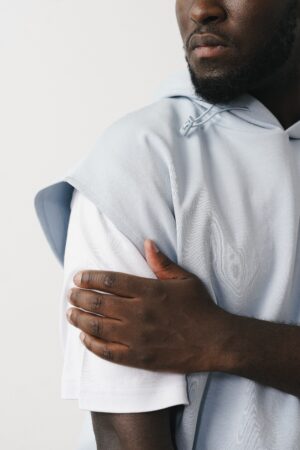To Our Men: Are You Ok?

Written by Marina Andreoli-Laubscher
Historically, mental health challenges were primarily associated with women. One infamous example is the now-defunct diagnosis of ‘hysteria‘ considered a dramatic women’s affliction in the 19th-century. Nowadays, we recognize the symptoms in multiple disorders affecting the entire gender spectrum.
There remains a lack of awareness around the struggles many men face today, making for an uncomfortable truth. According to the Czech Government Council on Mental Health, 1 in 5 Czech’s have a common mental illness, with no discrimination among genders. Expats are affected too. In the U.K., for example, one in 8 males is affected.
Issues include:
- Generalized anxiety disorder
- Depression
- Obsessive-compulsive disorder
- Bipolar disorder
- Social anxiety disorder
- Post-traumatic stress disorder
- Schizophrenia
These are treatable conditions, but men are less likely to receive such help. The statistics are sobering: men are 3x more likely to commit suicide than women in the UK. and 3.7x times more likely in the United States.
There is promising progress, though. We are seeing a host of activists like Jim Carrey, swimmer Michael Phelps, and tennis player Marty Fish making their struggles public, inspiring others by showing they’re not alone in facing these legitimate battles.
Boys Don’t Cry

“In modern societies, the male emotional expression has not been well received because it is primarily associated with weakness. Because men tend to bear the societal stereotype of strong providers of the family, they may think that needing help means that they don’t live up to these expectations,” explains Dr. Pınar Kaya Kurtman, Clinical Psychologist and supervisor at Prague Integration.
The world raises boys to avoid emotional expression. They are unlikely to learn key emotional regulation strategies and habitually suppress complicated feelings and thoughts as they arise. Education can change this. However, mental health training has been lacking in Czech schools to date. Thankfully, changes are happening, but what about the previous generations robbed of their well-being?
Common Symptoms
According to various studies, mental health disorders may be experienced differently by different sexes. The noticeable biological differences (like hormones) are only one aspect, interacting with culturally normative roles and responsibilities often internalized by the individual. It’s an enormously complex subject, but the scientific inquiry has revealed several symptoms more common among men.
- Alcohol and drug misuse
- Out of character behavior that concerns others or gets in the way of daily life
- Aggressiveness
- Persistent worry, irritability & frustration
- Concentration difficulties
- High-risk behavior
- Suicidal thoughts
- Appetite and energy fluctuations
- Unusual body pain
- Bowel irregularities
- Sleep difficulties
- Increased sleeping times
I’m Worried About My Mental Health. What Now?
Acknowledgment is a significant first step. Kudos! Here are some practical ways to protect your mind and body.
- Talk about your feelings with a friend. You will feel supported when you feel heard, and support is powerful medicine.
- Boost your self-esteem, blood circulation, and concentration with regular movement.
- Eat & drink mindfully. By learning how to make nutritious meals, you’ll promote body health, gain sensory pleasure, and enjoy creativity.
- Do what you do well. Lose yourself in a hobby that takes your mind off things.
- Get help. Speak to a G.P. about your concerns, or find a trusted therapist. We are here for you! Contact us to set up a discovery call now.
Emergency Centers
EMERGENCIES RIAPS Crisis Center / Regional Institute of Acute Psychosocial Services
24-hour helpline: +420 222 580 697
Chelčického 39, 130 00
Prague 3 Crisis Intervention Center in Bohnice
MUDr. Petr Příhoda – Primář
+420 284 016 111
Psychiatric Hospital Bohnice Ústavní 91, 181 02 Prague 8
These crisis centers are available 24/7; no appointment is necessary. However, contacting them first will help ensure an English-speaking professional is there to help.
Sources:
Gender and Mental Health. (2002). World Health Organization. https://www.scribbr.com/apa-citation-generator/new/article-journal/
Hedegaard, H., Curtain, S., & Warner, M. (2021). Suicide Mortality in the United States, 1999–2019. NCHS Data Brief No. 398 February 2021. https://www.cdc.gov/nchs/data/databriefs/db398-H.pdf
Smith, D. T., Mouzon, D. M., & Elliott, M. (2016). Reviewing the Assumptions About Men’s Mental Health: An Exploration of the Gender Binary. American Journal of Men’s Health, 12(1), 78–89. https://doi.org/10.1177/1557988316630953
